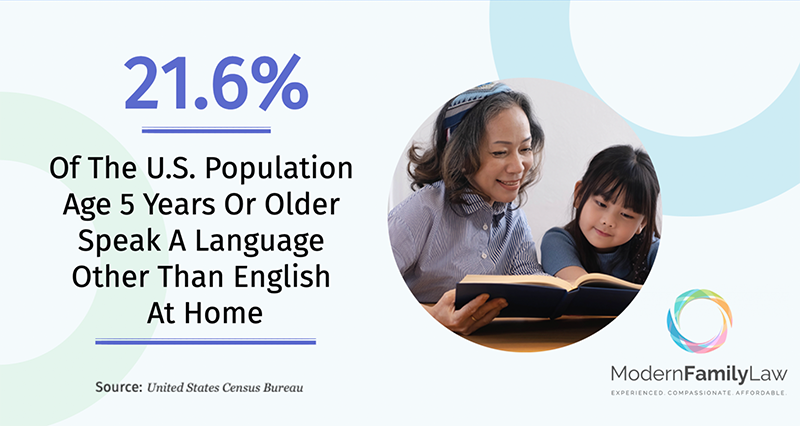While many take access to justice for granted, there are often significant barriers to that access for people with limited English ability. In particular, family law is an area that impacts people of all different backgrounds, and equitable access to family law services is crucial to ensure that their rights are protected.
In an ideal world, all parties involved in family disputes would have equal opportunities to understand, engage with, and be heard in the judicial system. Beyond basic legal representation, equitable access means ensuring that people fully understand and participate in legal proceedings affecting their families, regardless of linguistic background or ability.
Language plays a pivotal role in our legal systems. Without the ability to fully communicate and be understood, no number of strong facts can help. When parties can’t fully communicate in the dominant language used in a legal setting, they often face barriers to accessing justice. Although the Courts provide interpreters at hearings, interpreters and translators are not as easily available outside official Court proceedings. And even with an interpreter, legal terms are often difficult to translate, and their misinterpretation can lead to serious consequences and unjust outcomes.
In the following sections of this article, we will thoroughly examine the scope of language barriers, the challenges they present, the consequences that arise from these challenges, and the existing and prospective solutions to mitigate unjust family law outcomes solely because of limited English ability.
For Attorney Jandi Keum, providing clients with access to justice is a personal issue that she is passionate about. As a former Spanish and Korean interpreter and translator, Jandi strongly believes that everyone deserves to be heard and helped in their own language to ensure that they get a fair outcome in court.






